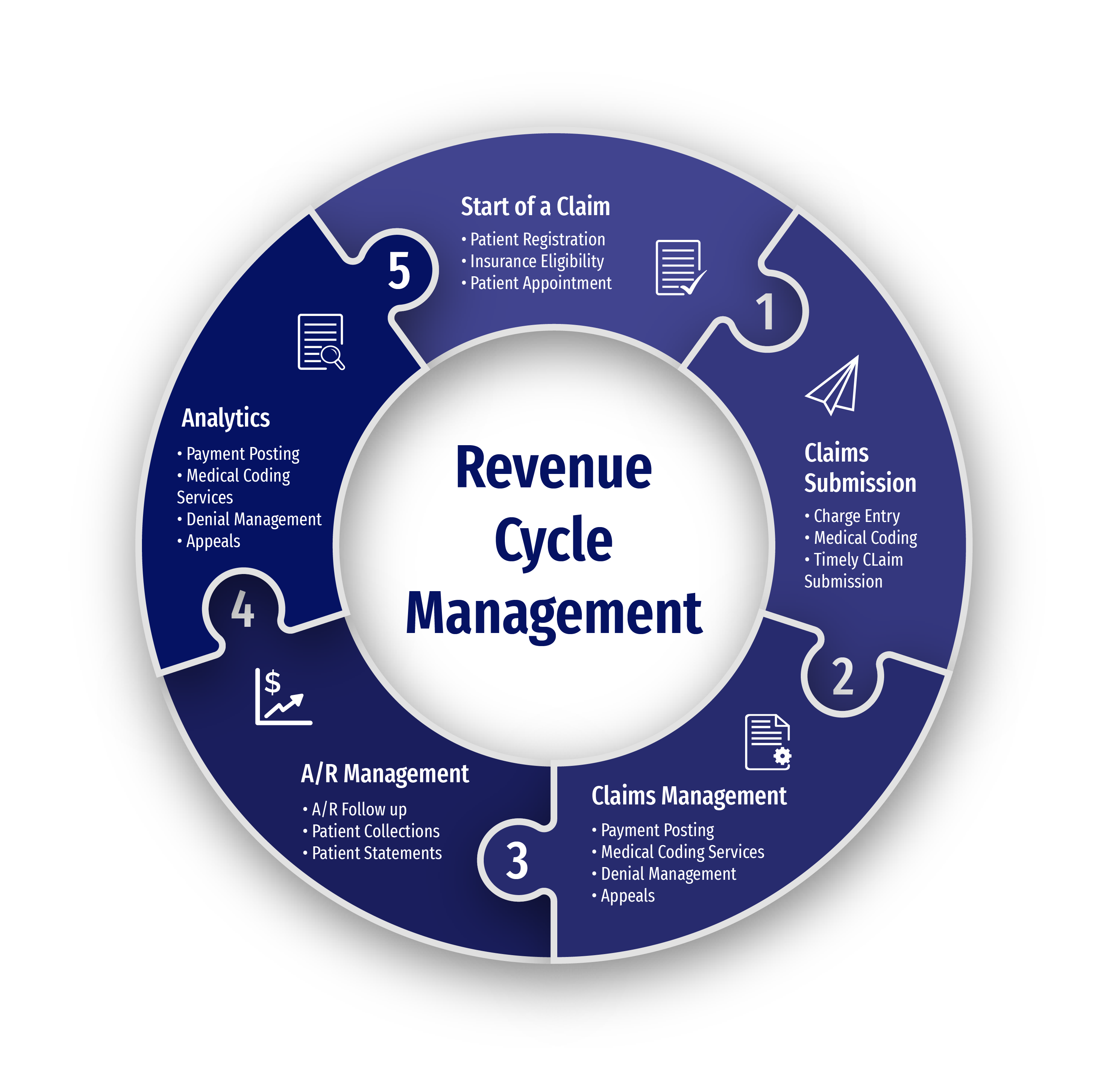- Home
- »
- Specialties
- »
- Urology Billing Services
Outsource Urology Billing Services | BPO Medical Billing
Urology is a specialized field focused on diagnosing and treating disorders of the urinary tract and male reproductive system. Urology services range from routine exams and diagnostics to complex surgeries.
Urology billing requires expertise to handle the specific codes and payer requirements for these varied treatments.
As a trusted urology billing company, we provide reliable urology medical billing services that streamline your practice's revenue cycle, ensuring timely and accurate reimbursements.

Complete Urology Billing Solutions
Our urology billing services are designed to meet the unique needs of each practice. We offer comprehensive solutions, ensuring that every aspect of your billing process is optimized for maximum efficiency and reimbursement.
Surgical and Non-Surgical Procedure Billing
Urology involves both surgical and non-surgical procedures, from prostate exams to complex kidney stone removal surgeries. We specialize in coding and submitting claims for these procedures, ensuring that each service is documented correctly and reimbursed optimally.
Diagnostic and Imaging Procedure Billing
Urology practices frequently perform diagnostic tests such as ultrasounds, cystoscopies, and imaging studies. Our team ensures that all diagnostic procedures are accurately coded, ensuring compliance with payer policies and minimizing the risk of denials.
Chronic Condition Management Billing
Managing chronic conditions, such as prostate issues or bladder dysfunction, is a key part of every practice. We track ongoing treatments and ensure that all chronic care management services are properly documented and coded for consistent reimbursement.
Pre-Authorization for Specialized Procedures
Many procedures, including surgeries and advanced treatments like prostate biopsies, require pre-authorization from insurance providers. We handle the pre-authorization process efficiently, ensuring that services are approved before they are provided and preventing delays in patient care.
Urology Cancer Treatment Billing
Billing for cancer treatments, such as chemotherapy and radiation therapy for prostate or bladder cancer, requires special attention to ensure all procedures are correctly coded. We manage these complex billing tasks, ensuring reimbursement for every aspect of treatment.
Urodynamic Testing and Procedure Billing
Urodynamic testing is essential for diagnosing urinary tract dysfunction, but these procedures come with specific billing codes. Our team ensures that all urodynamic tests are accurately coded and processed, reducing the risk of errors and claim denials.
Benefits of Outsourcing Urology Billing Services
Compliant Urology Medical Billing
We ensure that all billing processes for the services strictly adhere to payer and state regulations, minimizing errors and avoiding penalties. Our focus on compliance protects your practice from costly mistakes.
Maximized Reimbursements for Your Practice
Through precise coding and attention to detail, we ensure that your practice gets faster claim approvals and higher reimbursements. Our expertise helps you achieve the financial outcomes you deserve.
Efficient Claim Management
We manage the entire claim cycle, from submission to follow-up, ensuring timely payments and reducing delays. Our proactive approach keeps your practice’s cash flow smooth and consistent.
Dedicated Urology Billing Team
Our team of experts specializes in urology billing, offering in-depth knowledge of the unique requirements for every service rendered. This reduces the risk of denials and ensures that your claims are accurate and processed efficiently.

Urology Billing Challenges and Solutions
Complex Coding for Urology Procedures
Urology encompasses a wide range of complex procedures such as prostate biopsies, catheter insertions, and cystoscopies, each requiring accurate and specific codes. Incorrect coding can lead to denials or underpayments. Our team ensures precise coding for all urological procedures, reducing errors and ensuring that every service is reimbursed correctly.
Insurance Variability for Urology Services
Urology services are often covered by different insurance providers, each with varying requirements, policies, and limitations. This can make billing a challenge as specific treatments like kidney stone procedures or cancer screenings may be covered differently. We stay updated on payer policies and manage these variations, ensuring that your practice’s claims are processed according to the insurer’s guidelines, minimizing rejections and delays.
Pre-Auth Requirements for Treatments
Certain treatments, such as surgeries, lithotripsy, and high-cost medications, often require prior authorization, which can be time-consuming and delay patient care. Our team handles the entire pre-authorization process, ensuring that these procedures are approved swiftly and accurately, reducing interruptions to treatment and billing workflows.
Handling Denied and Underpaid Claims
Denials and underpayments in urology can often be linked to the complexity of treatments, such as surgical procedures or specialized diagnostic tests. If claims are denied or underpaid, it impacts your cash flow. We actively monitor claim denials, analyze the reasons for rejection, and resubmit claims with the necessary corrections, ensuring your practice receives the appropriate reimbursement.
Billing for Specialty Urology Tests
Urology practices frequently perform diagnostic procedures like cystoscopy, urodynamics, and prostate-specific antigen (PSA) tests, which require specialized billing codes and documentation. Inaccurate coding or lack of supporting documentation can lead to delayed or denied payments. Our team is skilled in the proper coding for these specialized urological diagnostics, ensuring your practice receives timely reimbursement for all tests performed.
Managing Urology-Related Infusion Therapy Billing
Certain treatments, such as chemotherapy for bladder cancer or other infusions, require precise billing for both the medication and the administration of the infusion. These treatments often involve complex coding and multiple steps, which can be prone to errors if not handled correctly. We handle the full billing process for infusion therapies, ensuring accurate coding and minimizing the risk of rejections or underpayments related to infusion services.
Get In Touch
Send a message to discuss your specific needs and issues, and how we can assist you in solving them.
-
Send a Message
Share your requirements and challenges. -
Expect a Prompt Reply
Receive several solutions tailored to your needs. -
Schedule a Call
Arrange a discussion for further details.
Specialties We Excel In
Nephrology Billing Services
Urology and nephrology are closely related, especially when it comes to kidney health and urinary conditions. Our Nephrology Billing Services focus on treating kidney diseases, dialysis, and related conditions, complementing urology care by offering specialized billing for kidney-related procedures and treatments.
Oncology Billing Services
Urology and oncology often work together in the diagnosis and treatment of cancers affecting the urinary system, such as prostate and bladder cancer. Our Oncology Billing Services streamline the billing for cancer treatments like chemotherapy, radiation therapy, and surgeries, collaborating with urology services to ensure comprehensive cancer care for patients.
Leadership Team
Dimitar Talevski
Dimitar is a seasoned marketing specialist and the visionary behind CLICKVISION. With over 10 years in digital marketing, he excels in crafting marketing strategies that boost rankings, which in return increase leads, conversions, sales, profits, and ROI.

Filip Dimitrijevski
With a strong background in the marketing industry and healthcare leadership roles, Filip is responsible for CLICKVISIONBPO's sales strategies and onboarding new clients. With a passion for sharing insights gained from his experience, he also shares valuable knowledge through industry related articles.

Help center
Got a question?
Get your answer
Quick answers to questions you may have. Can't find what you're looking for? Get in touch with us.
Whenever we have denials or rejections, our team researches to identify the reason and rectify any errors promptly. We follow up with payers, provide additional documentation if necessary, and appeal denials on behalf of the practice to ensure maximum reimbursement for services provided.
We adhere to strict HIPAA guidelines and employ security measures, including encryption, access controls, and regular audits, to safeguard patient information throughout the billing process. Our commitment to data security ensures patient confidentiality and compliance with regulatory requirements. We have security measures policy in place, and can be requested for review at any time.
Opting to outsource medical billing to us, you get access to various services, including claims submission, payment posting, denial management, and accounts receivable follow-up. Our comprehensive approach ensures that every aspect of your practice's billing needs is covered efficiently and accurately.
Accuracy is crucial in urology revenue cycle management to avoid claim denials and maximize revenue. Our team undergoes regular training to stay updated with the latest coding guidelines and payer requirements specific to urology. We also have an internal quality control team that double checks every claim prior submission to minimize denials.
